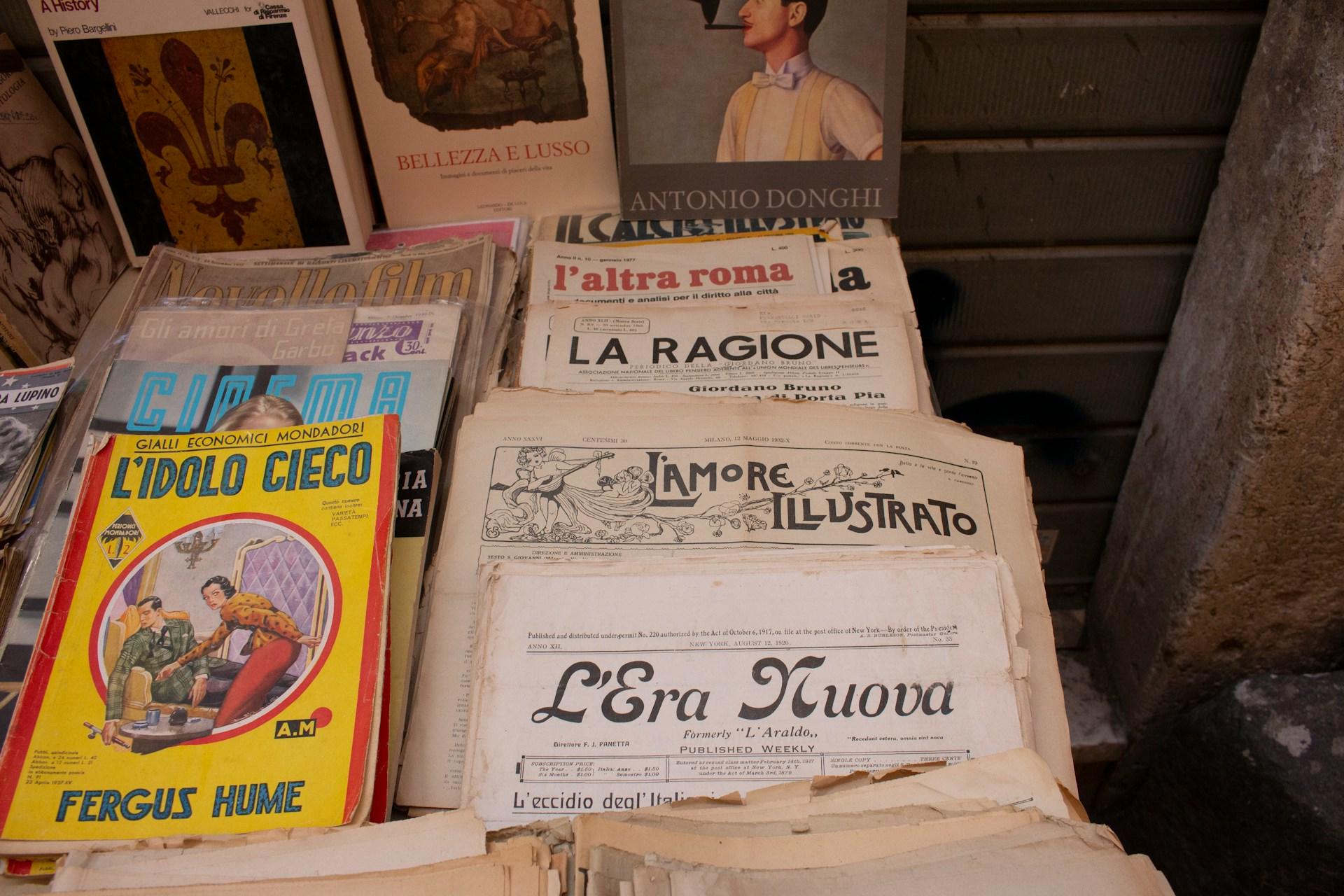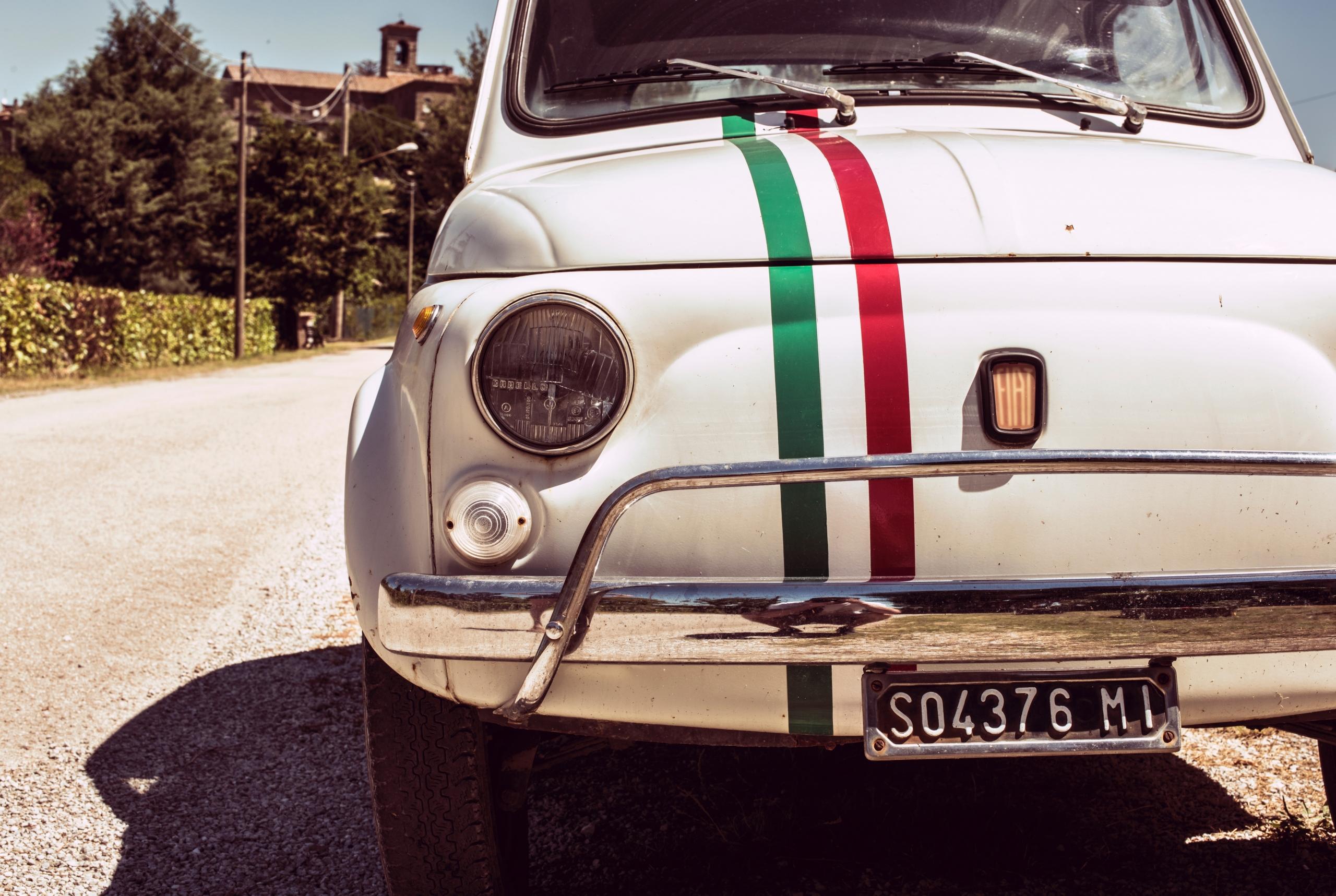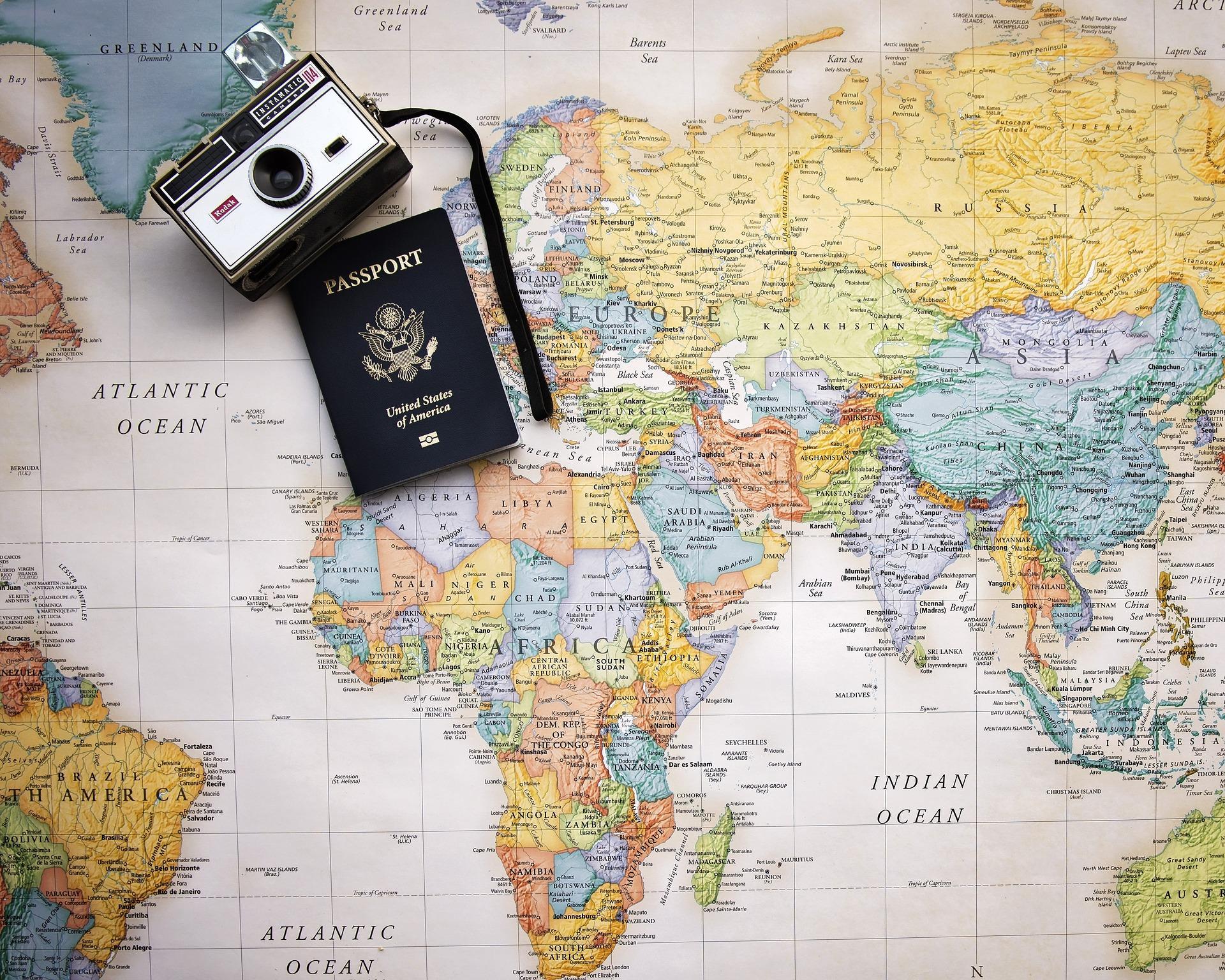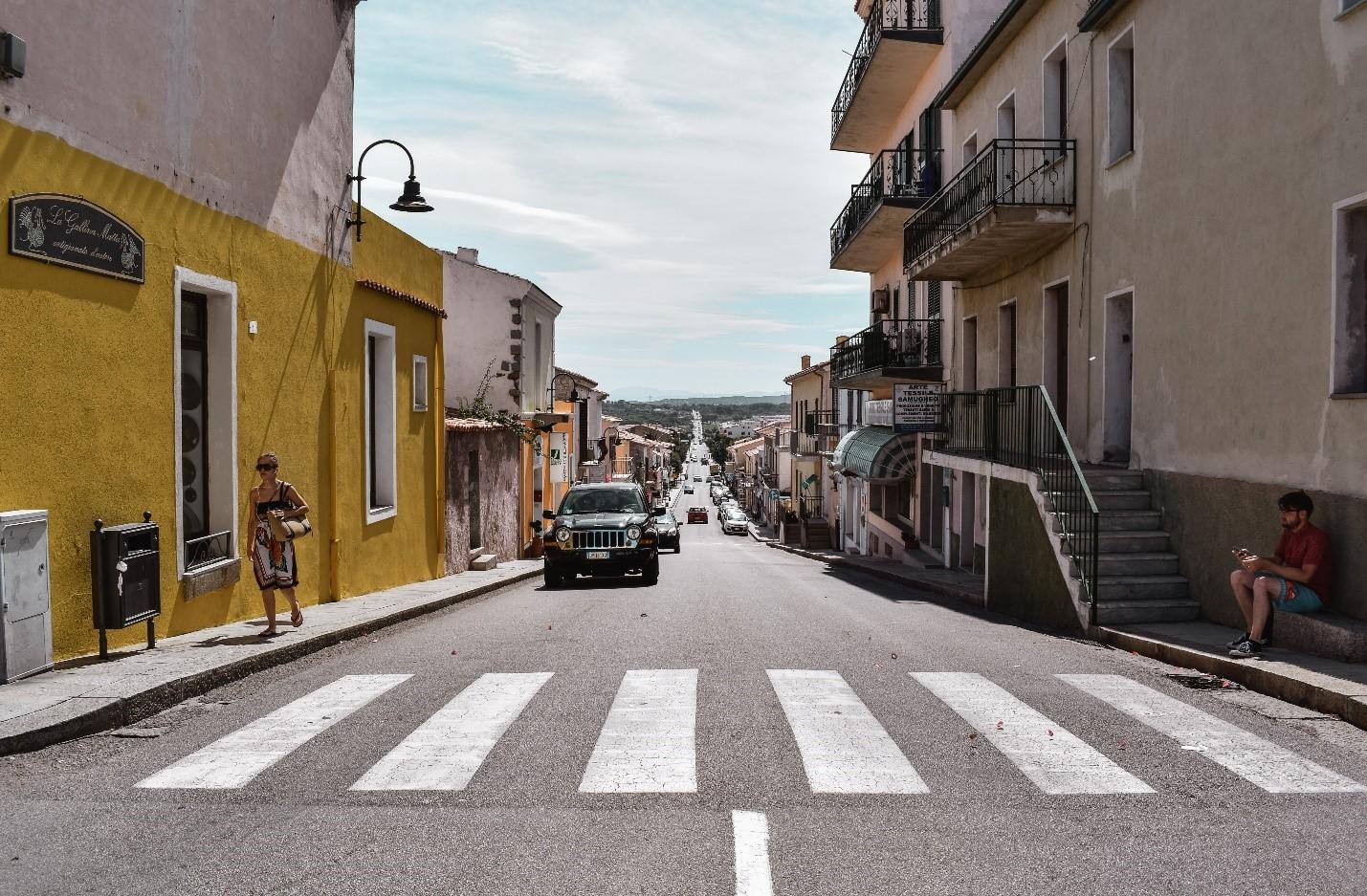There are around 500,000 different words in the Italian language, and thought to be around two million words that are “sayable and writable” including abbreviations, slang, and more. That’s a whole lot of learning for somebody who wants to master the language.
Fortunately, you don’t need to be able to recite the whole dictionary to have conversations, and just a few basic words and phrases can definitely help you out if you are looking to get by on your travels. Think about this as a sort of digital phrase book that can help you to learn Italian before a trip or to converse with Italians about the weather and current events in your own city.
Masculine and Feminine Words
Before we dive into the Italian vocabulary and start to learn useful Italian words and phrases, let’s look at the fact that Italian has masculine and feminine versions of the same words. Though you don’t need to understand every single variation, it can definitely help you out to get used to the concept. Even some really simple terminology can involve choosing the right version (masculine or feminine).
Mainly adjectives and some other parts of speech, like articles and pronouns, change depending on the gender of the noun they are modifying. This applies to describing yourself as well.
When talking about yourself, you would use masculine forms if you are male and feminine forms if you are female.
If somebody wants to tell you they are Italian, they will say Io sono Italiano (I am Italian) if they are male. However, there is a female version of the same term, lo sono Italiana. It means the same thing, but is intended for females who are explaining their origin.
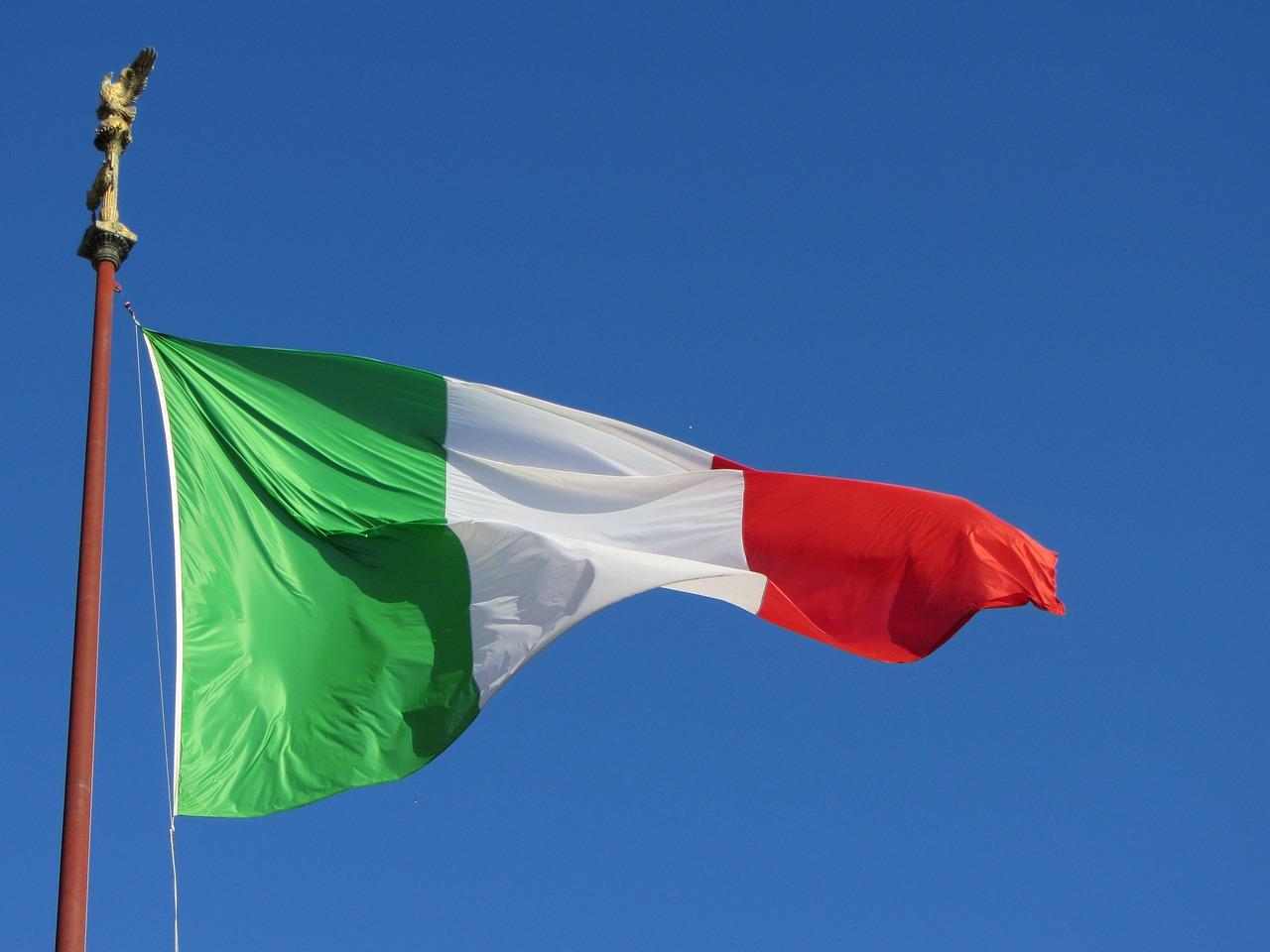

Introduction to Essential Italian Words
Italian culture has had a huge impact all over the world, and some of the Italian words have even made their way into the vernacular of people from other places. Do you know anyone who says “ciao” when they are saying goodbye? They’re simply embracing an Italian word and using this (sometimes to sound more exotic.
A lot of people are aware of some Italian basics, mainly because of the fact that the culture has been so influential to the UK, and many English-speaking countries. For instance, you may know the meaning of the word “amore” means love. You may have heard the song by the same title, or this could be something you’ve picked up over the years.
While 34% of Italians are thought to have a good level of English, just 2% of people in Britain say that they could hold a conversation in Italian. Though there will need to be a lot of changes to bring those figures to a more even level, holidaymakers and other Brits can do their bit to learn the basics of Italian.
Basic Italian Words
| Italian Word | English Translation | Pronunciation |
|---|---|---|
| Ciao | Hello | |
| Grazie | Thank you | |
| Prego | You're welcome | |
| Buongiorno | Good morning | |
| Buonasera | Good evening | |
| Sì | Yes | |
| No | No | |
| Per favore | Please | |
| Scusa | Excuse me / Sorry (informal) | |
| Mi dispiace | I'm sorry | |
| Arrivederci | Goodbye | |
| Bene | Well / Good | |
| Male | Bad | |
| Domani | Tomorrow | |
| Oggi | Today | |
| Amico | Friend (masculine) | |
| Amica | Friend (feminine) | |
| Casa | House / Home | |
| Cibo | Food | |
| Acqua | Water |

Italian Pronunciation
Now that you’ve read through a very basic list of words, you might already be thinking “how do I say that?” and the truth is that you might need some extra help! Learning how to tell the time or how to ask about certain topics also means learning how to say certain words.
The way we say things in English is very different to a lot of the Italian pronunciations, and though you may be able to write the language, being able to say the words and speak to people in the language makes all the difference.
Let’s take one word, buonasera, meaning good evening, as an example.
Pronunciation can make all the difference to whether or not you are actually understood by an Italian. For some people with certain accents in the UK or elsewhere in the world, it may not be clear how to pronounce certain words, and it isn’t the most intuitive part of learning the language. Surrounding yourself with as much audio and visual content as possible in the language will help you to try and get the pronunciation down to a T.
Navigating Everyday Situations in Italian
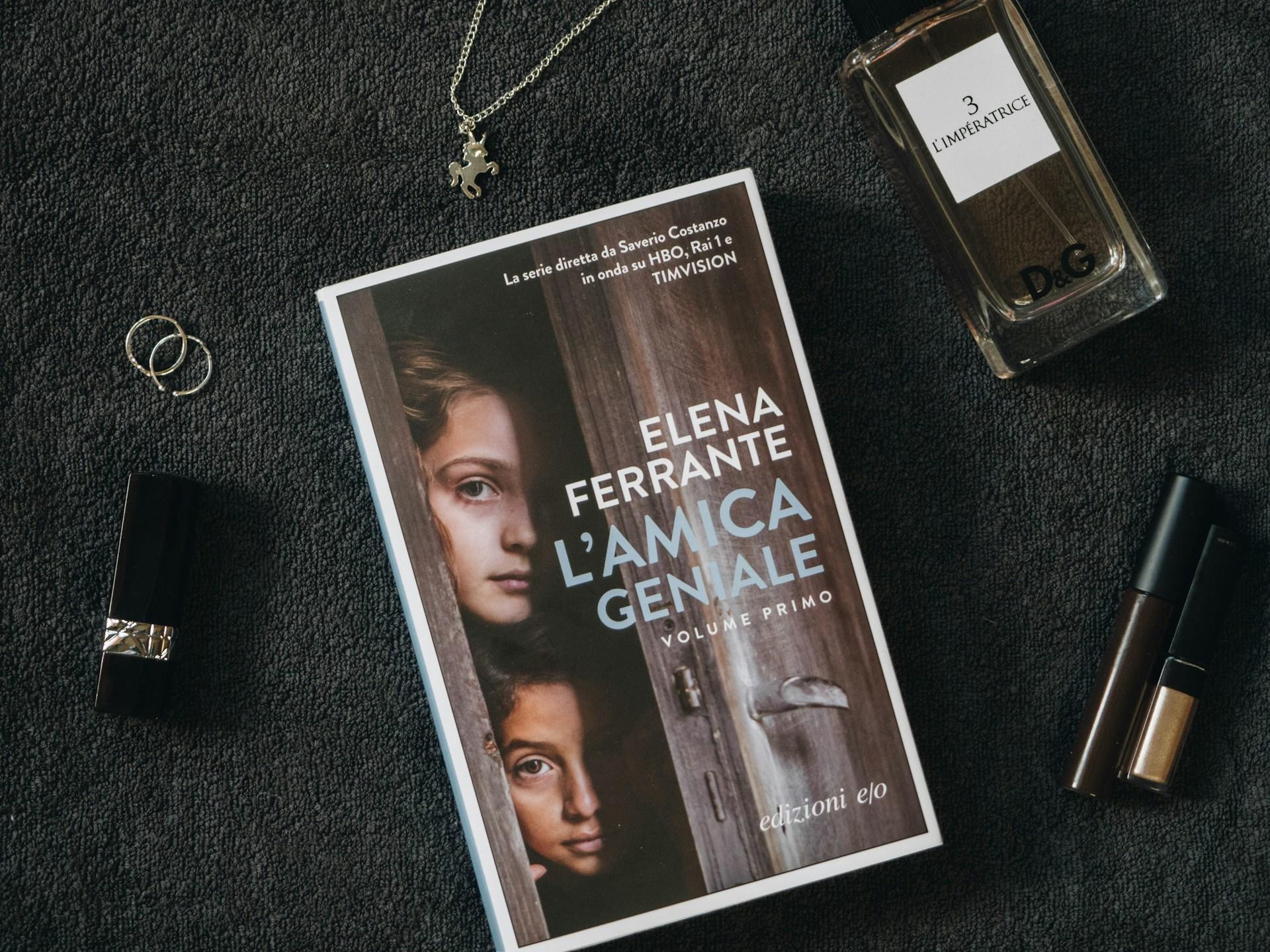
If your goal is to learn some basic Italian phrases to get you through your travels, then there are a lot of different examples of everyday terms and sentences that may get you through those scenarios.
If you’re visiting Italy, we definitely recommend getting to the point where you can say a few basic Italian phrases, even if that just means that you’ll be able to say please, thank you, and ask how you can find the toilets, or which day of the week something is happening on.
Many Italians will be able to speak to you in English, but it is nice to be polite and at least make some effort. If you’re going to speak to Italians in their country, just learning how to tell them you can’t speak the language (non parlo Italiano) is a start.
There are also a lot of other scenarios you may get into if you are travelling in Italy such as travel, and being able to order food and drink can also be very useful. Getting to a decent level of Italian doesn't have to be too difficult.
Let’s explore some of the language that you might want to use:
| Italian | English |
|---|---|
| Scusa | Excuse me (informal) |
| Mi scusi | Excuse me (formal) |
| Mi dispiace | I'm sorry |
| Non parlo italiano | I don't speak Italian |
| Parli inglese? | Do you speak English? (Informal) |
| Parla inglese? | Do you speak English? (Formal) |
| Non capisco | I don't understand |
| Parli lentamente, per favore | Please speak slowly |
| Ripeta, per favore | Please repeat |
| Mi puoi aiutare? | Can you help me? |
| Dove si trova il bagno? | Where is the bathroom? |
| Quanto costa? | How much does it cost? |
| Posso avere il conto, per favore? | Can I have the bill, please? |
| Sono allergico/allergica | I am allergic |
| Sono allergico/allergica alle noci | I am allergic to nuts |
| Sono allergico/allergica ai latticini | I am allergic to dairy products |
| Sono allergico/allergica al glutine | I am allergic to gluten |
| Sono vegetariano/vegetariana | I am a vegitarian |
| Sono vegano/vegana | I am a vegan |
These are some of the tips that may help you in finding different places or for use when you are in a restaurant, for instance. Many of these basic phrases in Italian are also a good way of explaining that Italian is not your first language or simply asking for basics, such as the cost (which heavily involves Italian numbers), and where you can find the bathroom.
There are a lot more words that you might need to use if you are going to visit Italy, so if you are learning Italian phrases for a tip, the following video can help you greatly. On top of that, it can also help you getting the pronunciation perfected:
Tips on Learning Italian Basics
If you want to learn Italian then there are a lot of things that you can do to learn Italian, and immerse yourself in the language. There are many variations from English, and even a different alphabet. Immersion is by far the most useful tip we can give you, and the more time you can devote to taking in Italian media, the better. You can even turn your subtitles to Italian the next time you watch something on Netflix (or listen to the dubbed version).
One of the simplest (and most effective) ways to immerse yourself in the language is to take in things like podcasts, and there are even learning podcasts that are designed specifically for beginners. The “coffee break” nature of this show means that you can learn in bite-sized chunks, perfect for a break time or a trip back from work.
As well as listening to podcasts and immersing yourself in Italian media and videos as much as possible, here are some other useful tips:
- Commit to daily practice. Set aside dedicated time each day to practise Italian, whether it's listening to music, watching movies, or practising with language partners or a tutor.
- Focus on commonly-used words. This guide is perfect for finding some simple words and phrases that see a lot of use. Learn high-frequency words and phrases that you're likely to encounter in everyday conversations.
- Utilise language learning apps like Duolingo, Babbel, or others, which offer structured lessons and interactive exercises and can also help to “gamify” the process, which is great for those who feel they struggle to stick to the habit of learning.
- Put the language to use. Don't be afraid to start speaking Italian, even if you make mistakes. Practice speaking with native speakers, language exchange partners, or Superprof tutors to improve your conversational skills. If you are taking a class, then saying Italian words and learning the basics will be normal within the class, but try to make use of your new knowledge and speak Italian in other scenarios.
Learn Italian With Superprof
Whether you’re preparing for a trip to Italy, or you have always wanted to learn this stunning Romance Language, there are a lot of ways to get started, including one-to-one lessons with a Superprof tutor. Even if you just want to learn common Italian vocabulary and very basics, you can take a few lessons before a trip. It's nice to be able to speak Italian with the locals.
Superprof can connect you to tutors all over the UK, many of whom offer a free first lesson as you get used to their style and see if lessons are for you. There are also options for both in-person lessons and online lessons to suit your own needs, and language tutors all over the UK to ensure you don’t have to travel far to find lessons with a fluent Italian speaker.
Summarise with AI:

